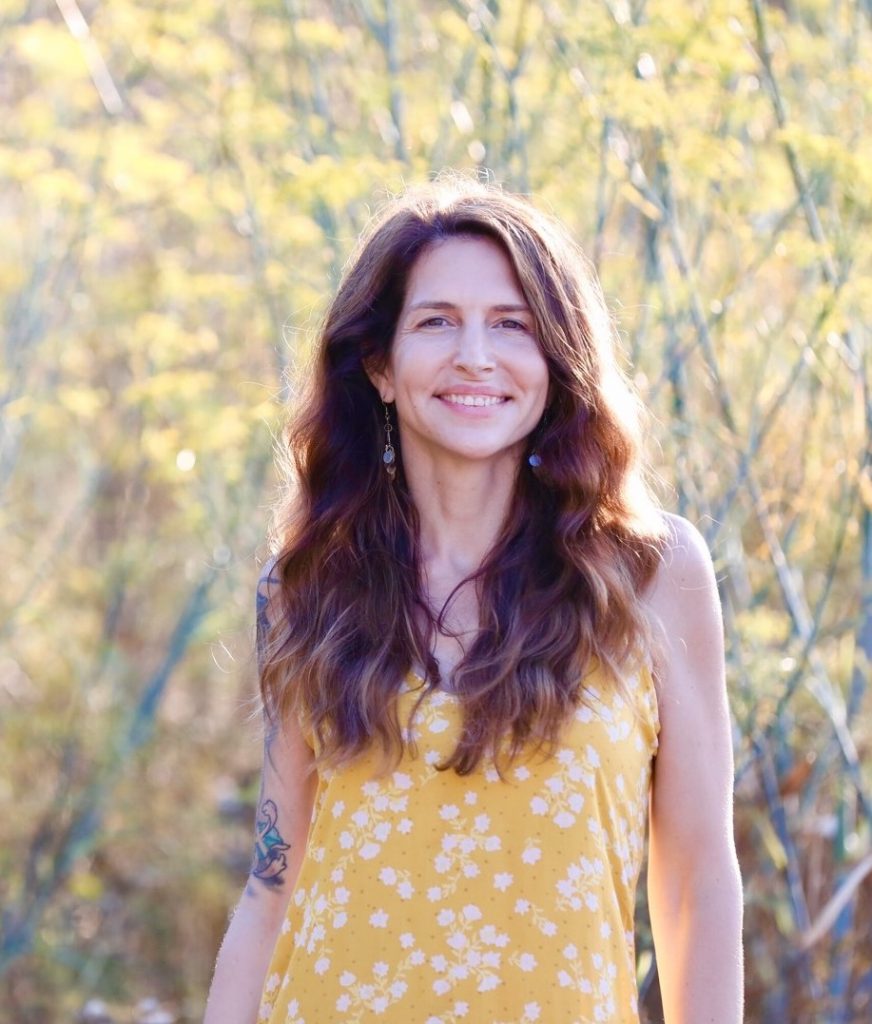In his book The Art of Uncertainty, Dennis Merritt Jones writes:
“Between a shaky world economy, increasing unemployment, and related issues, many today are being forced to come to the edge of uncertainty. Just like the baby sparrows, they find themselves leaning into the mystery that change brings, because they have no choice: It’s fly or die.”
For persons struggling with depression and anxiety — and for those of us who are highly sensitive — uncertainty is especially difficult. Forget about learning to fly. The uncertainty itself feels like death and can cripple our efforts to do anything during a time of transition.
I have been living in uncertainty, like many people, ever since December of 2008 when the economy plummeted and the creative fields — like architecture and publishing — took a hard blow, making it extremely difficult to feed a family. In that time, I think I have worked a total of 10 jobs — becoming everything from a defense contractor to a depression “expert.” I even thought about teaching high school morality. Now that’s desperate.
I don’t think I’ll ever be comfortable with uncertainty, but having lived in that terrain for almost five years now, I’m qualified to offer a few tips of how not to lose it when things are constantly changing.
1. Pay attention to your intention
I’m not a new-age guru. I don’t believe that you can visualize a check for $20,000 and find one in your mailbox the next day. Nor can you get on Oprah by believing you’ll be her next guest. (I tried both of those.) But I do recognize the wisdom in tuning into your intention because therein exists powerful energy that you can tap.
Awhile back I did Deepak Choprah’s exercise of recording my intentions and seeing how many of them actualized. I was surprised at the synchronicity between intention and events. Psychologist Elisha Goldstein writes in his book, The Now Effect: “Our intention is at the root of why we do anything and plays a fundamental role in helping us cultivate a life of happiness or unhappiness. If we set an intention for well-being and place it at the center of our life, we are more likely to be guided toward it.”
2. Tune into the body.
Psychologist Tamar Chansky, Ph.D. reminds us to listen to the body when we get anxious. If you understand why certain symptoms occur in the body – racing heart, dizziness, sweating, stomachaches – and repeat to yourself, “This is a false alarm,” you are less afraid, less panicked by the situation. Knowing that these symptoms are part of the sympathetic nervous system (SNS) trying to protect you from danger – part of the primitive regions of the brain mobilizing the “flight-or-fight” response –the reaction becomes less about the situation and more about talking to your body about why it’s freaking out so that you can use the parasympathetic nervous system (PNS) to restore the body to normalcy, which, in my case, is still pretty panicky.
3. Imagine the worst.
I’m not sure you will find a psychologist to agree with me on this exercise, but it has always worked for me every time I do it. I simply envision what it would look like if my worst nightmare happened. What if my husband and I could not get any architecture gigs or writing assignments? What if we can’t pay for health care insurance and my heart malfunctions (I have a heart disorder)? What if we both come to a bone fide professional dead end? Then I move to my actions. I think about selling our house, moving into a small apartment, and working as a waitress somewhere or maybe as a barista at Starbucks. (If you work more than 20 hours, you get health care insurance.) I research health care insurance options for persons who make minimum wage. Under ObamaCare, my kids, at least, would be covered. I invariably come to the conclusion that we will be okay. All is okay. A huge adjustment. Yes. But we are getting to be pros at that. This exercise makes me fret less about the things that I think I must have and get back to the essentials—literally a warm meal on the table, even if it’s one a day.
I am comforted by the words of Charles Caleb Colton: “Times of general calamity and confusion have ever been productive of the greatest minds. The purest ore is produced from the hottest fire.”
4. Describe, don’t judge.
In his book Get Out of Your Mind and Into Your Life, Steven Hayes, Ph.D. dedicates a few chapters to learning the language of your thoughts and feelings. Especially helpful to me is learning how to distinguish descriptions from evaluations.
Descriptions are “verbalizations linked to the directly observable aspects or features of objects or events.” Example: “I am feeling anxiety, and my heart is beating fast.” Descriptions are the primary attributes of an object or event. They don’t depend on a unique history. In other words, as Hayes, explain, they remain aspects of the event or object regardless of our interaction with them. Evaluations, on the other hand are secondary attributes that revolve around our interactions with objects, events, thoughts, feelings, and bodily sensations. They are our reactions to events or their aspects. Example: “This anxiety is unbearable.”
If we are feeling anxious about the uncertainty of our job, for example, we can tease apart the language of our thoughts and try to transform an evaluation, “I will be destroyed if I am fired,” to a description, “I am feeling anxious and my job is unstable.” By naming the emotion and the situation, we don’t necessarily have to assign an opinion. Without the opinion, we can process the object, event, etc. without hyperventilation.
5. Learn from fear.
Eleanor Roosevelt wrote, “You gain strength, courage, and confidence by every experience in which you really stop to look fear in the face … You must do the thing you think you cannot do.” My body usually protests against that statement, but theoretically I concur with Eleanor. I sincerely believe the good stuff happens when we are afraid. If we go a lifetime without being scared, as Julia Sorel said, it means we aren’t taking enough chances.
Fear is rather benign in itself. It’s the emotions we attach to it that disable us. If we can confront our fear, or rather approach it as an important messenger, then we can benefit from its presence in our life. What is the fear saying to us? Why is it here? Did it bring roses or chocolate? According to Jones, this is an exercise of getting comfortable with being out of control, of learning to let go of the illusion of control — because we never really had it in the first place — and developing an inner knowing that everything will be okay.
reblogged from http://psychcentral.com/

